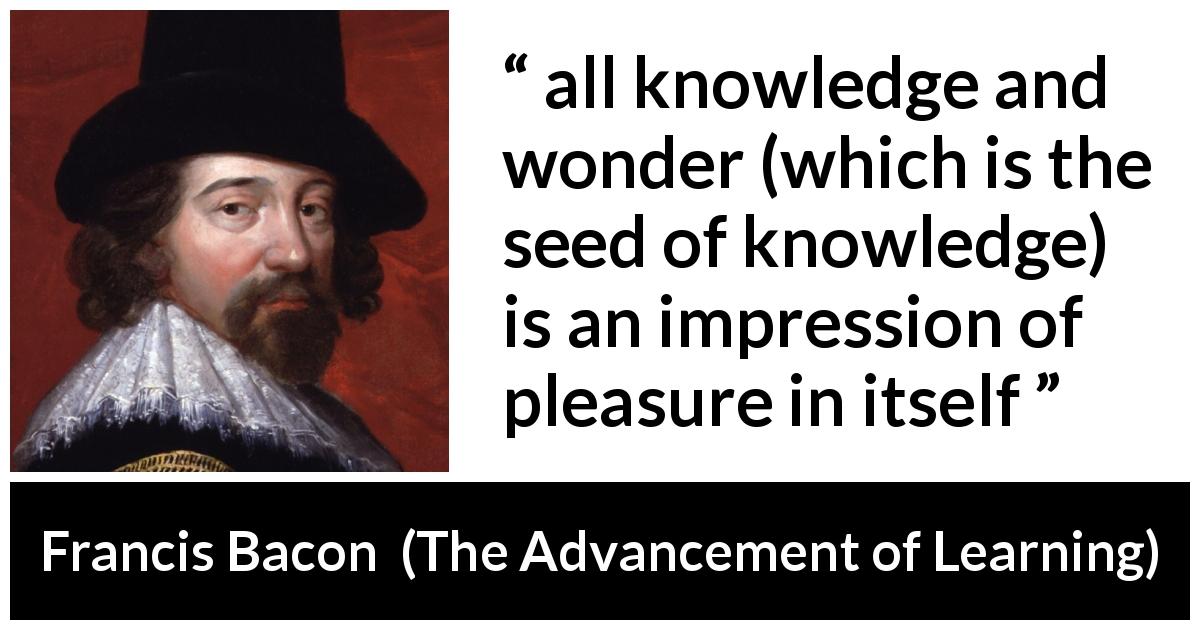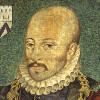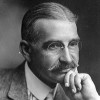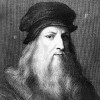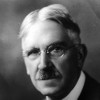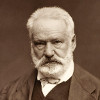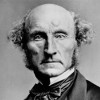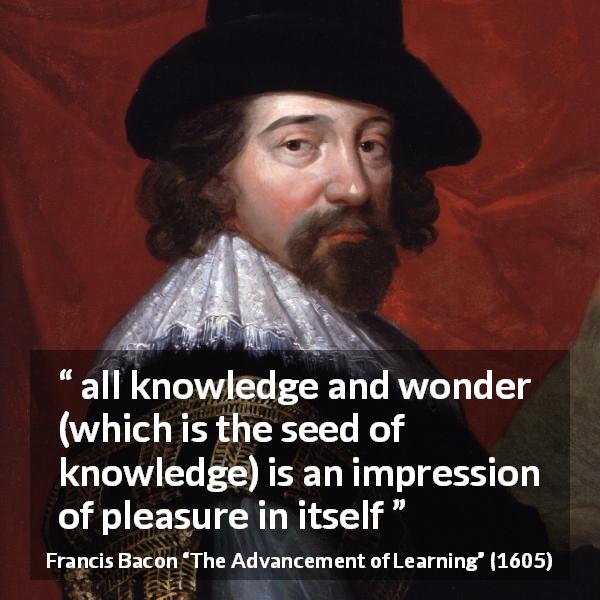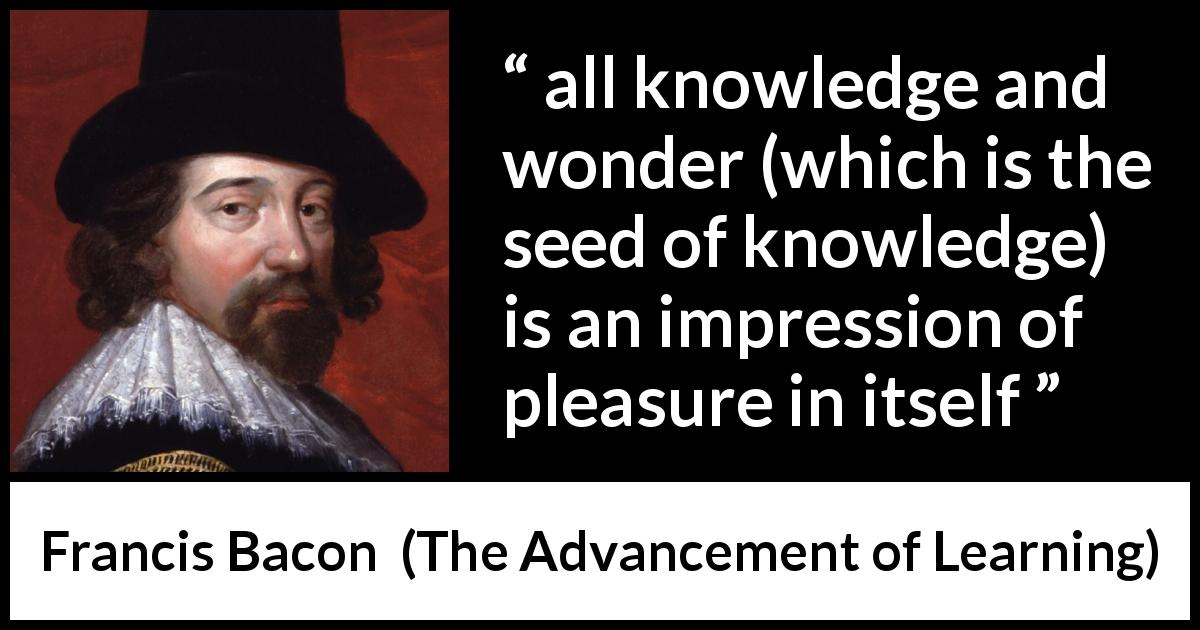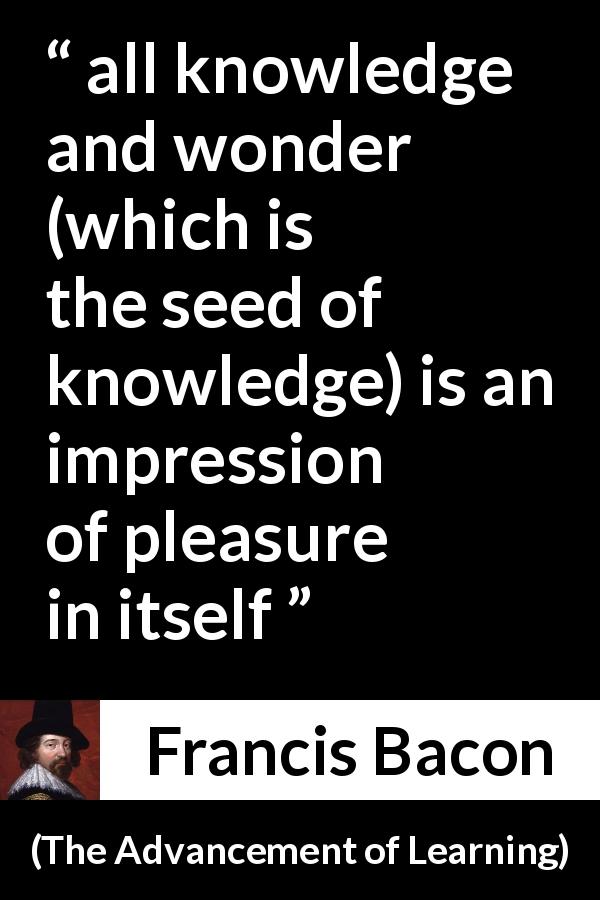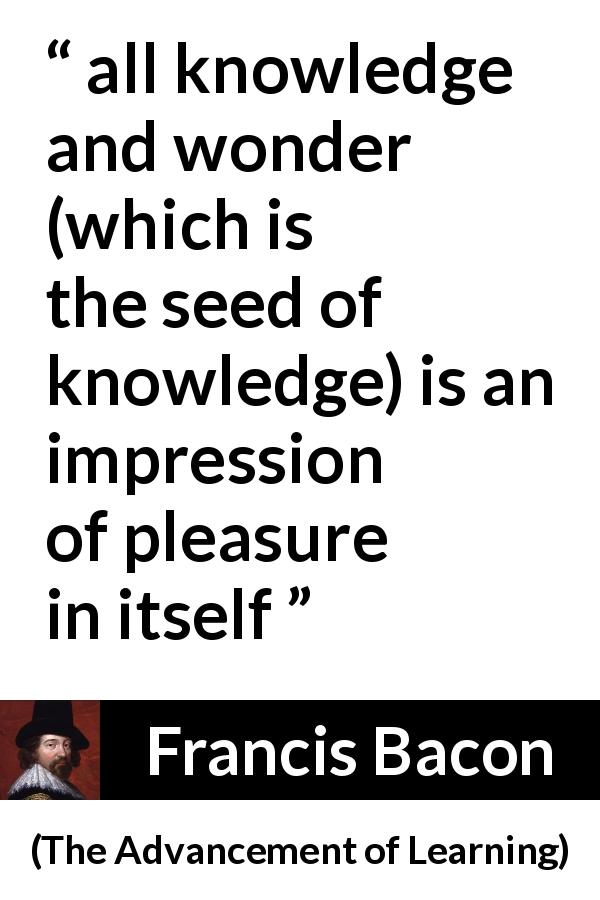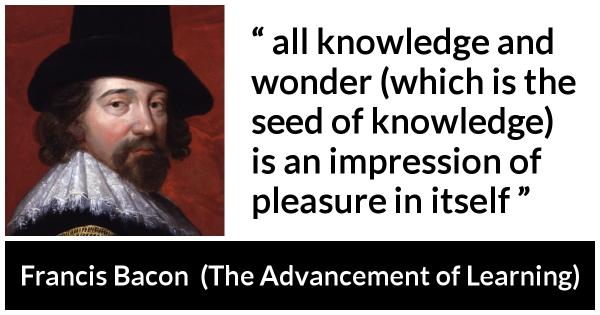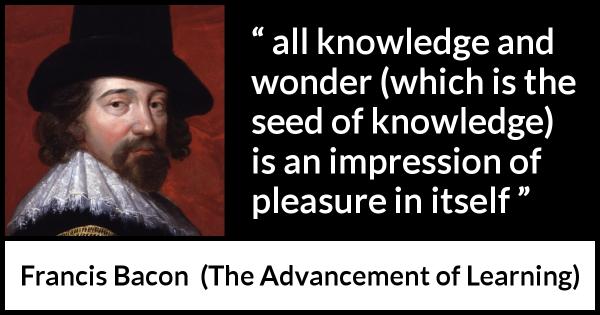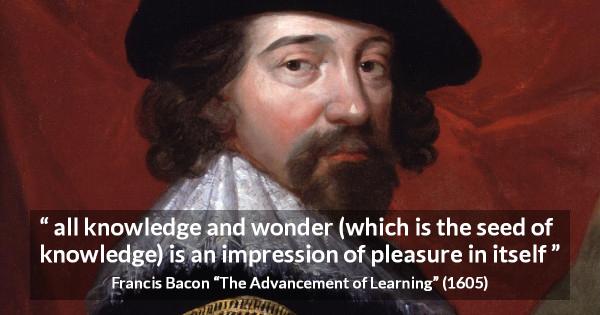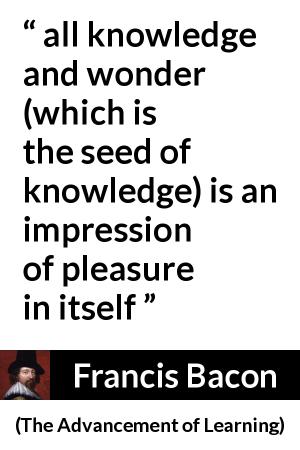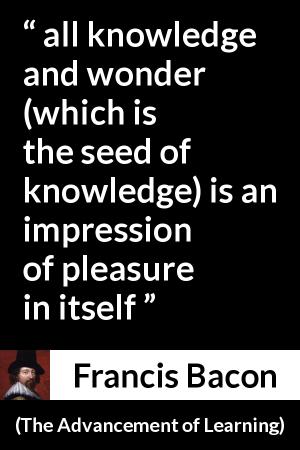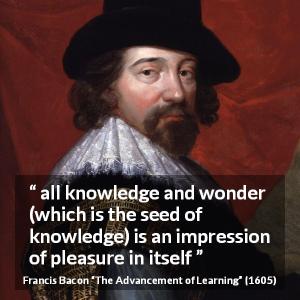“ all knowledge and wonder (which is the seed of knowledge) is an impression of pleasure in itself ”
Francis Bacon, The Advancement of Learning (1605). copy citation
| Author | Francis Bacon |
|---|---|
| Source | The Advancement of Learning |
| Topic | knowledge pleasure |
| Date | 1605 |
| Language | English |
| Reference | |
| Note | |
| Weblink | http://www.gutenberg.org/files/5500/5500-h/5500-h.htm |
Context
“For as touching the first of these, Solomon doth excellently expound himself in another place of the same book, where he saith: «I saw well that knowledge recedeth as far from ignorance as light doth from darkness; and that the wise man's eyes keep watch in his head, whereas this fool roundeth about in darkness: but withal I learned that the same mortality involveth them both.» And for the second, certain it is there is no vexation or anxiety of mind which resulteth from knowledge otherwise than merely by accident; for all knowledge and wonder (which is the seed of knowledge) is an impression of pleasure in itself; but when men fall to framing conclusions out of their knowledge, applying it to their particular, and ministering to themselves thereby weak fears or vast desires, there groweth that carefulness and trouble of mind which is spoken of; for then knowledge is no more Lumen siccum, whereof Heraclitus the profound said, Lumen siccum optima anima; but it becometh Lumen madidum, or maceratum, being steeped and infused in the humours of the affections. And as for the third point, it deserveth to be a little stood upon, and not to be lightly passed over; for if any man shall think by view and inquiry into these sensible and material things to attain that light, whereby he may reveal unto himself the nature or will of God, then, indeed, is he spoiled by vain philosophy; for the contemplation of God's creatures and works produceth (having regard to the works and creatures themselves) knowledge, but having regard to God no perfect knowledge, but wonder, which is broken knowledge.”
source
